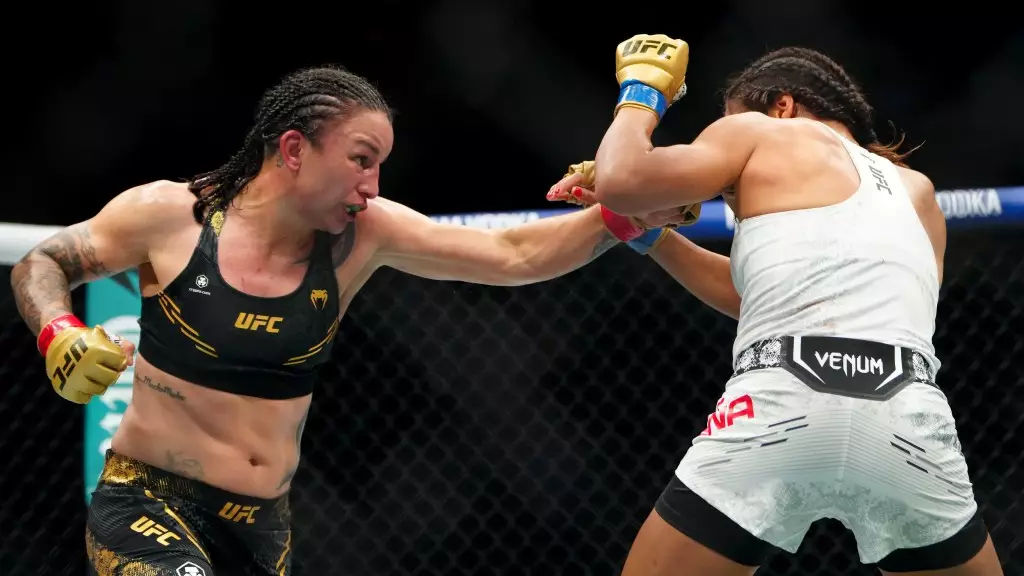The world of mixed martial arts is no stranger to controversies, and the recent battle between Raquel Pennington and Julianna Peña at UFC 307 serves as another vivid reminder. As Pennington walked into the octagon as the reigning women’s bantamweight champion, fans held high hopes for her title defense. However, the outcome—a split decision loss—left more questions than answers. Pennington, with an impressive track record of 16 wins and 10 losses, showed alarming resilience but ultimately fell victim to a decision that many in the MMA community deemed unjust.
Despite winning one of the three official scorecards, the consensus among commentators and fans alike leaned heavily towards the belief that Pennington had, in fact, clinched victory. This clash of perspectives reveals a critical fault line in the judging system. The auditory feedback on social media platforms echoed a significant discontent, and the aftermath raised discussions about the integrity of fight scoring. Should the perspectives of trained judges be reconsidered when a substantial portion of the audience expresses discontent?
Following the loss, Pennington took to Instagram, not only to process her feelings but also to express gratitude for the community that surrounds her. “I do not feel I lost that fight,” she poignantly articulated, declaring her intent to rebound from this setback. This sentiment showcases an admirable quality within her character—the ability to maintain a positive outlook amidst adversity. Pennington’s message was a call to arms for her supporters, emphasizing unity and hope.
Her gratitude extended to her training team and supporters, spinning a narrative that isn’t just about personal defeat but rather an acknowledgment of the network that empowers her journey. This underscores the idea that in competitive sports, a fighter is not isolated; they are part of a broader community that shares in both triumphs and disappointments. It speaks to the importance of mental resilience in athletes, especially after split-second decisions that dramatically affect their careers.
With the UFC landscape constantly evolving, Pennington’s call for a rematch against Peña signifies her unwavering determination. The immediacy of her request highlights her competitive spirit and readiness to reclaim her title. Fans and analysts will certainly keep an eye out for what comes next in this narrative arc. The clamoring for an immediate rematch is indicative not just of her desire to right the perceived wrong but also showcases a growing movement among fans advocating for fairness in competitive outcomes.
Raquel Pennington’s journey through UFC 307 exemplifies the deep emotional layers connected to competitive sports. The headlines may highlight her defeat, but within that context lies a rich tapestry of resilience, community, and ambition. As she looks toward the future, the possibility of redemption looms large, not just for her but for an entire fan base eager to witness her return. In a sport marred by controversy, Pennington stands firm, ready to find her footing once more and reclaim her place among the elite.

